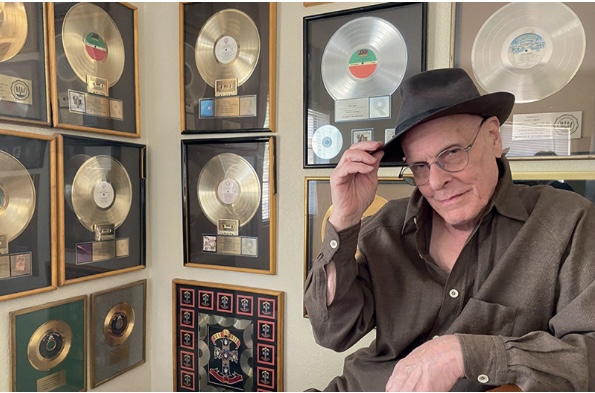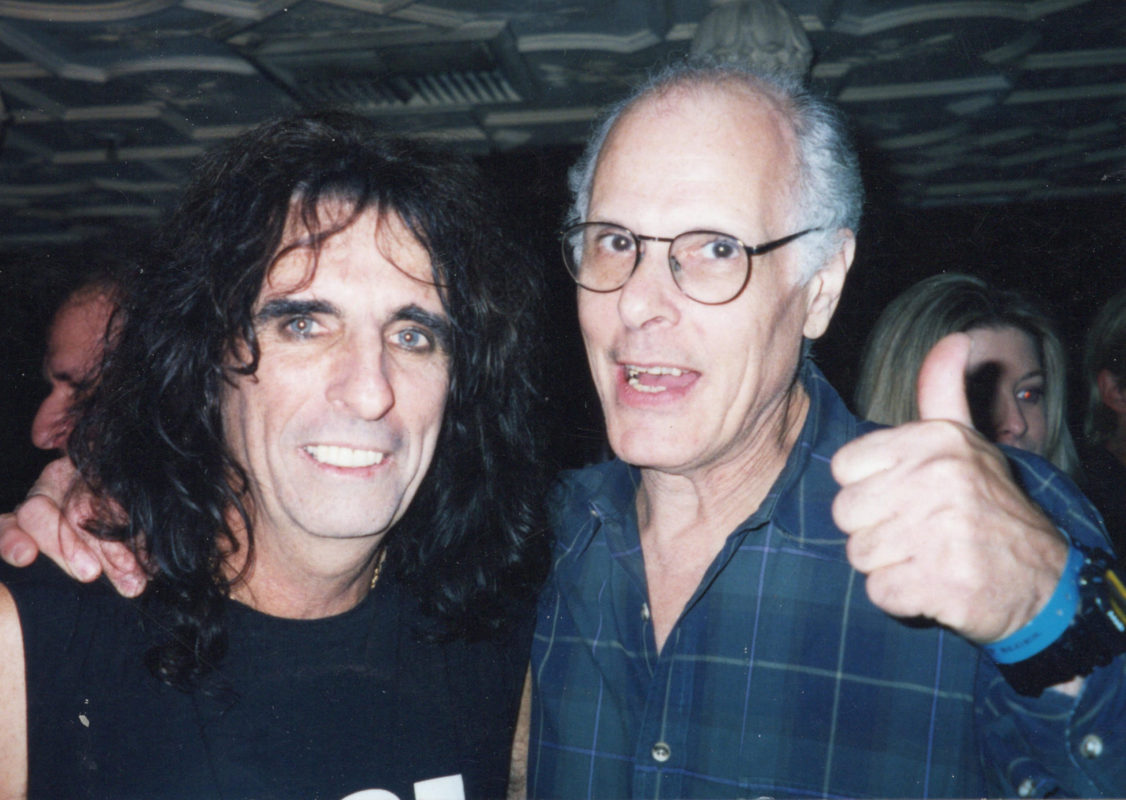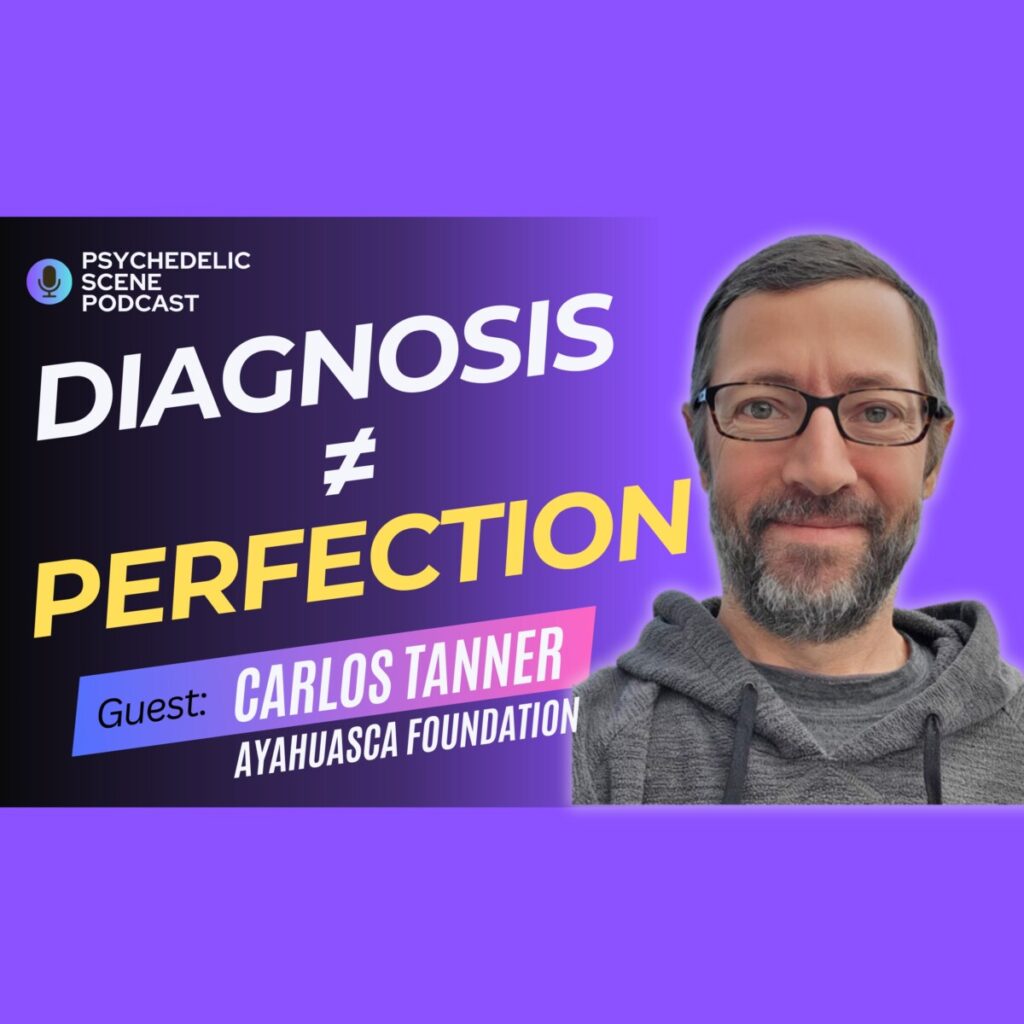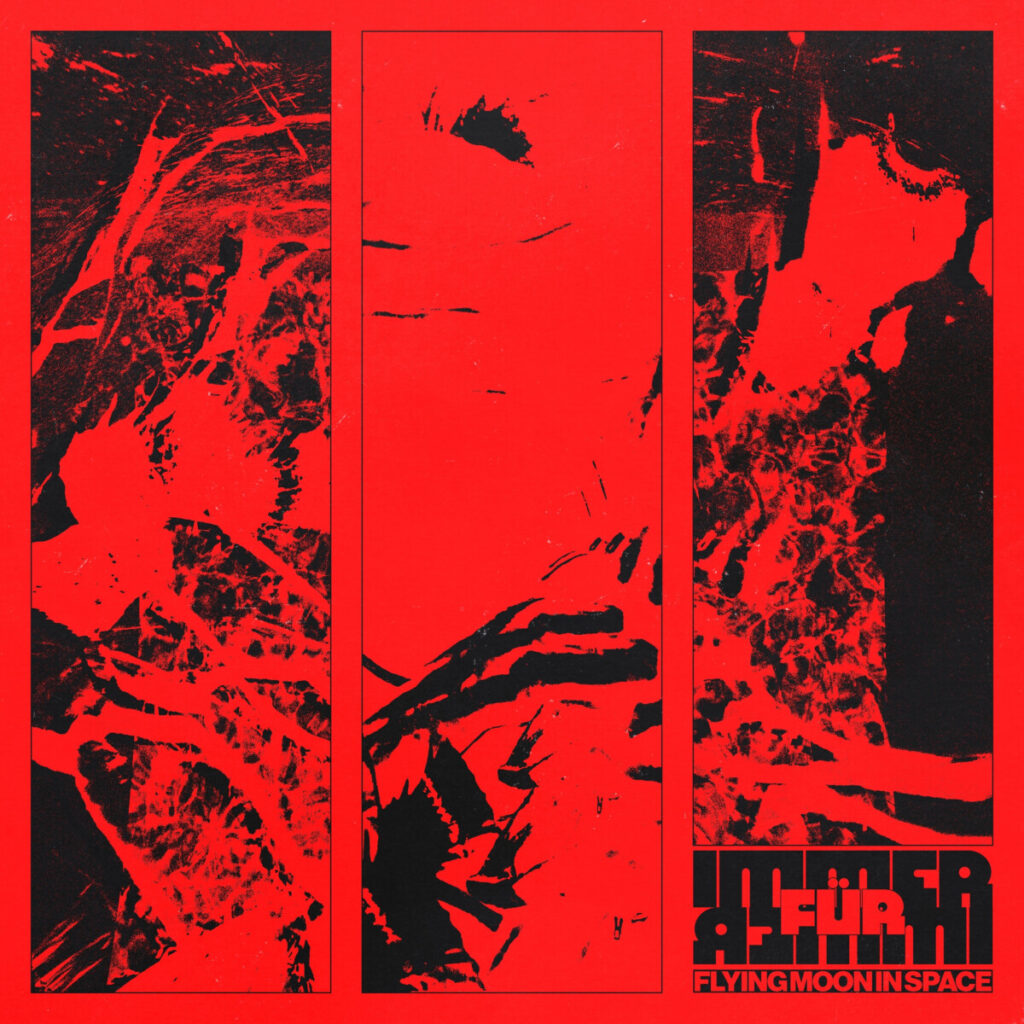Interview: David Libert
Interview: David Libert
Sean Graham: I am here today with David David Libert, multi-instrumentalist, writer, arranger, producer, tour manager, talent management and now author of his memoirs, Rock and Roll Warrior: My Adventures with Alice Cooper, Prince, George Clinton, Living Color, The Runaways and more. And it’s a good read. Extensive resume is very impressive. How did that kind of progress?
David Libert: Well, I started out as a musician years ago growing up in Paterson, New Jersey. I used to like to hang out with a few of my friends in the parking lot of a restaurant we frequented. And we would harmonize. We called it chirping in those days. And we used to listen to a lot of doo wop groups: the Paragons, the Jesters, the Diablos. And I don’t think we had any intentions of being seriously in the music business. Basically, we found it to be a really good way to meet girls. But after a while, we started to realize, “Hey, you know what? We sing as well, if not better, than all of these other bands that we hear on the radio. Maybe we should take a more serious look at all of this”. So I started hitting the streets of Tin Pan Alley, which is a section of New York City not too far away from Paterson, New Jersey where there were several buildings that housed music companies, publishing companies, record companies, recording studios, production companies.
David Libert: And if I walked into the offices of a music publisher, I told them I was a songwriter. I was in a band production company. I was in a singing group. And then finally one day, I walked into the offices of Bright Tunes Productions, which was a company owned by a singing group called The Tokens, who they themselves had a few very big hits: “The Lion Sleeps Tonight”, “Tonight, I Fell in Love”, and they were also producers. They were producers of The Chiffons, for instance, and they offered me and the lead singer of The Happenings a job writing songs for them. And they gave us a room with a piano in it and paid us the mighty sum of $25 a week each and that was sort of the start of the music business for us. Part of the agreement was that they would also produce The Happenings and ended up producing “See You in September” and “I Got Rhythm” and a lot of other hits for us, and that was the start of it all.
Sean Graham: Yes. And you were right out of high school with The Happenings, correct?
David Libert: Not quite. We were about 20 to 23 years old. Still not very old. A few years beyond, I had actually done a stint in the in the Air Force in between high school and, well, I went to Fairleigh Dickinson University for a year and things happened with my life and I decided I
If he was asked to be in the lobby at 8:22 in the morning, Alice Cooper was in the lobby at 8:22 in the morning.
really needed to shake things up. So I joined the Air Force, which yeah, did shake things up, but I only lasted in the Air Force a little less than two years, actually. For some reason or another, the Air Force simply didn’t seem to be able to adjust to my working hours. And so we parted ways, which was a good thing because, within a year, I was in The Happenings.
Sean Graham: That was one part of your resume I forgot about, the Air Force.
David Libert: Yes. But that was the period where I wasn’t involved in music. Although when I was in the Air Force, I actually had a band then. We used to play every night till three or four in the morning, which is mainly the reason why the Air Force tossed me out of the Air Force. I just couldn’t seem to get to work on time after being up till three, four or 5:00 every morning. And since I was working on B-52 bombers, which oftentimes had nuclear bombs in the bomb bay, they really didn’t look upon my working hours too kindly, which is understandable, I suppose. And so I ended up being with The Happenings for four years and we were fairly successful. And a couple of these gold records you see behind me are actually platinum as well. After I left The Happenings, I had a few different jobs. I worked for a management company and I was also managing The Happenings when I was in the band. Rather unusual circumstance, I suppose. Although I spoke to my friend JJ French the other day and he was actually managing Twisted Sister when he was in the band, so but he’s the only other guy I know that really was in a band and managing it at the same time. I decided I liked the business end. I actually like being on the other side of the microphone and I did a few different jobs and then I was offered the job of tour manager for Alice Cooper, and I took that job. And I remember that first night in Atlanta, Georgia. My first impression of it all was 30 or 40 crazy looking, long-haired people crawling all over the gear and equipment like giant insects. I thought I made the biggest mistake of my life taking this job. And Shep Gordon, Alice Cooper’s manager, said, “Just pay attention and observe. You’ll get the hang of it”. I didn’t know what to do. There was no text manual. There was no job description. But after a few days, he was right. The pieces started to fall into place, and I started to get the hang of it. And it turned out to be just a spectacular job flying with one of the biggest bands in the world in our own private jet all over the world, selling out arenas and stadiums and having the time of my life. Having Shep Gordon as a mentor, I learned 99% of what I know about this business of music just from paying attention to what he did and how he how he did things and so much so that it enabled me to have a life in the music business–four decades after leaving Alice Cooper.
Sean Graham: Well, that’s an impressive mentor.
David Libert: Yes, I couldn’t have found a better one on the face of the earth. There’s no question about that. Shep Gordon, Supermensch.
Sean Graham: Another name, a famous name. Johnny Podell, was the one who recruited you, correct?
David Libert: Yes. Johnny Podell. Probably the greatest agent, Certainly the greatest asker in the world. He can ask for the most outrageous, unreasonable of things and make it sound perfectly reasonable–that if you didn’t see the reasonableness of it, you were simply out of line. He was really, really good at that. So I actually learned a lot from Johnny Podell as well. So between those two guys, Johnny Podell and Shep Gordon, I learned everything that I needed to know about the music business to succeed.
Sean Graham: Well, we’re counting in the book about that experience, as you were very, very, very busy when you got going on that tour. I mean, it was like everything had to go by you.
David Libert: Yes. Yes. I learned very early on that if I was going to be a superstar manager, I had to be in complete control of everything, which is what Shep wanted because he didn’t want to have to be on the road. He wanted the freedom to come and go as he pleased. He had far more other responsibilities than the road, so he wanted me to assume all of the responsibility–an almost overwhelming task. But somehow or other I thrived in that environment because, number one, I created the environment in which I was thriving. Part of my job was to to create that environment and to make it run smoothly like a well-oiled machine, and also to make it as much fun as I possibly could for everybody. And I think it was that function of the job to make it so much fun that people were happy that I was the tour manager. And if you can make them happy that you’re the tour manager, it means that they were enjoying themselves. Things were running smoothly. They were having a good time. That’s what a successful tour manager needs to do, especially for a huge first class tour. With all the logistics involved and all the people on the road with you. It’s really an important thing to do that.
Sean Graham: And that was at a time when bands were really putting a lot of…Props, theatrics and costumes. Alice was on the forefront of that.
David Libert: Yeah, he was. And there was a lot of that going on. And one of the things about the people as crazy as everybody looked, they were really very, very professional, very proficient at their job and took their jobs very seriously because of all the props and special effects, they wanted everything to work perfectly because they didn’t want Alice to end up looking like an idiot on stage if something didn’t work. And, you know, they had a lot of respect and admiration for Alice. So because of that, they did everything they possibly could to make sure that nothing ever went wrong. And rarely did something ever go wrong. I mean, they loved the guy. They didn’t want to let him down. And rarely did they ever.
Sean Graham: And you loved him, too, correct? Very fond of him?
David Libert: Very much so. Listen, if I could pick the easiest guy to deal with on the road of all of those people, it would have to be Alice Cooper himself. I mean, if he was asked to be in the lobby at 8:22 in the morning, Alice Cooper was in the lobby at 8:22 in the morning. And, whereas, once or twice I may have had to have kicked in a hotel room door to get another band member up and running and get him out the door, it was never like that with Alice, and rarely did I ever have to kick in a door. I mean, everybody was pretty cooperative. But the thing with Alice, he was a lot of fun. He he was just cool to hang out with. He had a great sense of humor. He was a very good sport. There was nothing prima donna ish about Alice, you know, He just wanted to be one of the guys hanging out and he was like that. He could be perfectly happy hanging out with one of the roadies as much as he would be happy hanging out with Mick Jagger. It was all the same to him. And that tells you a lot about somebody.
Sean Graham: Yeah, it does. It certainly does. Now, on the other side of the coin, George Clinton was a little more challenging.
David Libert: Yeah, he he was a lot more difficult. First of all, you know, he had a lot of props and things as well. I mean, he had a gigantic spaceship that landed on stage every night. So was that a well-oiled machine? Not really. Now, I wasn’t his tour manager. I was at first his
He says, “David, I want you to book Parliament-Funkadelic as two separate acts. Funkadelic will open for Parliament and we’ll ask the promoter for two different fees”. I said, “George, you can’t do that.
booking agent and then later on his personal manager. But I was able to bring to the table almost immediately when I became his booking agent, things that I had learned being Alice Cooper’s tour manager to make his operation run a hell of a lot more smoothly than it has. So I ended up looking pretty good because I was able to apply a lot of what I had learned about traveling and logistics and all of that from the Alice Cooper organization. I was able to apply that to George’s organization. But yeah, it was a lot more difficult. I mean, George didn’t even have an exact number of people in the band. It changed every week. I mean, you know, he could meet somebody on the road and the guy could say, “George, I play guitar. I know every one of your songs”. And, you know, George was fine. “Why don’t you travel with us? And next thing you know, the guy’s in the band for a couple of weeks until something else happens. And so you never know. You know, a George Clinton thing was simply full of surprises. But I got to tell you, his shows were spectacular. The audience reaction to a Parliament-Funkadelic show was really something to behold. And as difficult as it was compared to Alice Cooper, I was very proud to be a part of all of that because it was just so good musically and just great entertainment.
Sean Graham: Yes, he was. He was a pretty shrewd operator, too, right? I mean, he managed to book his Parliament-Funkadelic as Funkadelic.
David Libert: Parliament. For Parliament. Yeah.
Sean Graham: And costumes changes.
David Libert: Yeah. He came to me one day. He says, “David, I want you to book Parliament-Funkadelic as two separate acts. Funkadelic will open for Parliament and we’ll ask the promoter for two different fees”. I said, “George, you can’t do that. They know that it’s the same band”. He goes, “So what? We’ll come out twice. We’ll change our clothes. It doesn’t matter. You know, the music is a little bit different for Funkadelic than it is for Parliament. We’ll charge him a little bit less for Funkadelic than we do for Parliament, since they’re the opener. And you know, everybody went along with it because that was the only way you were going to get Parliament-Funkadelic. And he was very straight, slick. He really thought outside the box in a lot of different ways. When he was in the studio, he would, you know, he produced Brides of Frankenstein, Boots’ Rubber Band, Paulette, besides Funkadelic. And, you know, and he had figured out–the only person I knew that ever was able to accomplish this–how to get around the exclusive activity of a recording contract. It’s a long story, but I explained it in the book. It left him the option of signing an endless number of recording contracts as long as he changed the name each time. For instance, he had a deal with the one label for Parliament, but there was a stipulation in the contract that he had a right to be Funkadelic on another label. And on and on and on.
David Libert: So when he went into the studio to record something, it would start out he really didn’t know who it was going to be for. It could be for Parliament-Funkadelic, Bernie Wall, The Horny Horns, Brides of Frankenstein, Pilot. He had all these deals going, Bootsy. So he would decide what band it was going to be the track for. But he sent a bill to all of the record companies and he would, you know, he would get paid by all of the record companies for the very same track. I think they knew what was going on, but they were all making so much money. If they had a funk mob group produced by George on their label then they really didn’t argue the point. And, you know, all this stuff was recorded in United Sound Studio in Detroit. So they got a little piece as well for sending the bill to all the companies. It was quite a scheme. And then the other scheme was, years later, his drug dealers were demanding that they be paid. He owed all these drug dealers a lot of money. So what did he do? He had them sign recording session sheets and sent the incentive sheets to the record company accountants. And that’s how he got his drug dealers paid. He had them sign session sheets as if they were musicians in a recording session. Yeah, he was pretty street-slick. He loved doing shit like that.
Sean Graham: Yeah, that part is amazing. Part of the stories about him and his antics and success is unusual.
David Libert: Yeah, sure.
Sean Graham: Yes. Now, you identified in the book that the most important thing in life is discovering happiness. And I assume that’s carried through and you’re still very happy.
David Libert: I’m a lucky guy, Sean. Somehow or other. With all of this going on in my life. And believe me, there were plenty of downs as well as ups somehow or other, either by pure dumb luck or by the grace of God, I seem to have landed on my feet all in one piece. I survived all of this. So, yeah, I feel blessed. I am happy. I live in the California high desert with my girlfriend Angie and our three rescue dogs, and we’re animal rights activists. That’s how I spend a lot of my time these days. And it’s very fulfilling. And yeah, I’m a lucky guy. I have to admit that somehow or other, it all worked out amazingly well.
Sean Graham: The book is selling well, correct?
David Libert: It’s doing very well. Yeah, it is. You know, it’s not this little specious tell all rock and roll book. Yeah, there’s a little bit of that in it. I mean, we’re talking about rock and roll here, but that’s not the point of the book. I wanted the book to be informative.
I want people to get the feel of what it was like to be behind the scenes backstage, sort of a fly on the wall with all of these famous people.
I wanted it to be witty. I wanted it to be a fun read and an easy read. I wanted to have a certain flow. And I think I was able to accomplish that because the reviews have been fabulous and everyone tells me it’s a great read, it’s a fun read, and that they really enjoy reading the book. So I’m very thankful and very grateful that they feel that way.
Sean Graham: Well, I agree myself. I enjoyed reading the book.
David Libert: Thank you.
Sean Graham: There’s talk about a film based on the book.
David Libert: Oh, God, yeah. I’m not supposed to be talking about that, but everybody seems to know about it. Wouldn’t that be something strong to have this thing? I thought this would be the last highlight of my life. I mean, I’m going to be 80 years old next month, although I don’t look it, do I, girls? But there may be another highlight coming. It looks like that. And wouldn’t that be fantastic? So I’m supposed to be kind of close-lipped about the whole thing, but everybody seems to know about it, so I really can’t deny it. And let’s see what happens.
Sean Graham: Well, I hope it happens. I have a hard time finding films I like to watch anymore, and I’m sure I would be very interested in viewing the film.
David Libert: That would be great. Fingers crossed. Knock on wood.
Sean Graham: Do you have anything that you’d like to add to the discussion?
David Libert: Well, like I say, I’m a lucky guy. I know that. And I would say for anybody who’s looking for a career in the music business or a career in anything that you want to pursue, make sure it’s something that will make you happy because that was the epiphany that I had that you refer to in the book. I had come to the realization early in life that the most important thing in life is to be happy. I mean, otherwise, what’s the point? And for me, it was an easy one. I knew that I wanted to be involved in music. It was a no-brainer for me. And I pursued it with vigor and I guess I was kind of unrelenting and pursued it with a passion. And if you feel that way about something, my advice to you is to pursue that endeavor. Go for it. Don’t quit. Give it everything you have to ensure that it will happen. I can’t say that it will happen, but it’s going to take all of that if it’s going to happen at all. And the pursuit is as exciting as getting there. Being there, The getting there is as good as the being there. It’s all it’s all rolled up into one great big adventure. So go for your dreams. That’s my advice.
Sean Graham: Good advice. Well, I thank you very much for joining me.
David Libert: Thank you, Sean. It’s been a pleasure. Been a lot of fun.
Gallery
Recent Articles
Can Molly Mend Your Marriage?
•
February 16, 2026
Immer Für Immer by Flying Moon in Space–Album Review
•
February 13, 2026

Loading...




